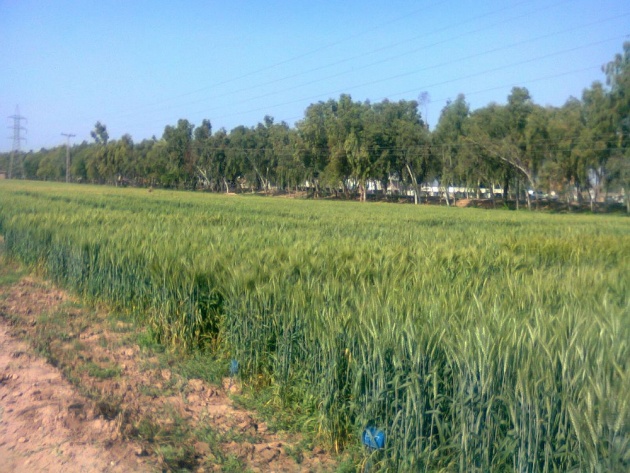Pakistan economy depends more than 60% on agriculture income. Agriculture industry has almost 21% share in Pakistan GDP.
Porter five force applications will reveal the importance of forces for agriculture industry.
There are large numbers of opportunities of investment are available for private and public sector in agriculture industry. Mainly agriculture industry is under control of government authority, but there are also other sectors which are actively working in agriculture industry from private sector, such as fertilizer, cotton(textile industry), hybrid seed, pesticide and agricultural equipment(machinery), major key players of these sectors are FFC, FFBL, Novartes, Bayer Pakistan, alkaram textile, etc
1.6: Five forces for agriculture industry of Pakistan
Bargain Power of supplier:
The first force is the bargain power of suppliers. The bargain power of suppliers shows the attractiveness of industry. If powerful suppliers are in the industry it will results low profit potential.
Bargain power of suppliers will be high if…
v Small number of substitutes of products, which to be supplied.
v Available quantity of raw material which is used for production, will results in high demand for their product.
v Control over raw material.
v High switching cost from one supplier to another supplier.
In Pakistan agriculture industry, seed, fertilizer, cotton (textile industry) and agriculture equipment (machinery) are the dominant sectors, which affects the whole agriculture industry.
In seed sector main producers are research stations; they introduce new species of seed of different crops. Latterly these seeds are available for sale in market.
Fertilizer is the main sector of agriculture industry. Key players of fertilizer sector are FFC, FFBL, Dawod Hercules chemicals, Engro Chemicals. They hold 80% of Pakistan fertilizer sector; therefore they have the bargain power of supplier, because of very few numbers of suppliers.
Cotton industry is the one the most dominant sector of agriculture industry in Pakistan. Cotton is the raw material for textile industry. Textile industry depends upon the production of cotton. So textile industry has low bargain power as supplier because of leak of control over raw material.
So we can rightly say that they have bargain power as supplier, because of large number of customers and fewer numbers of suppliers.



